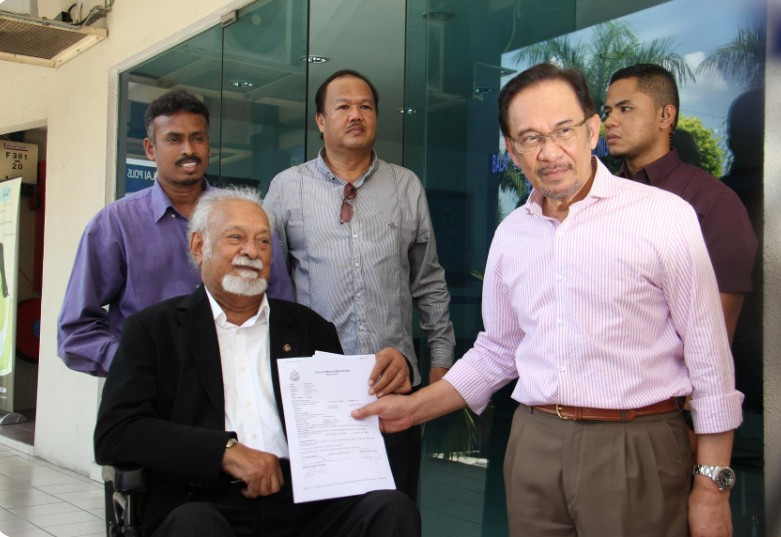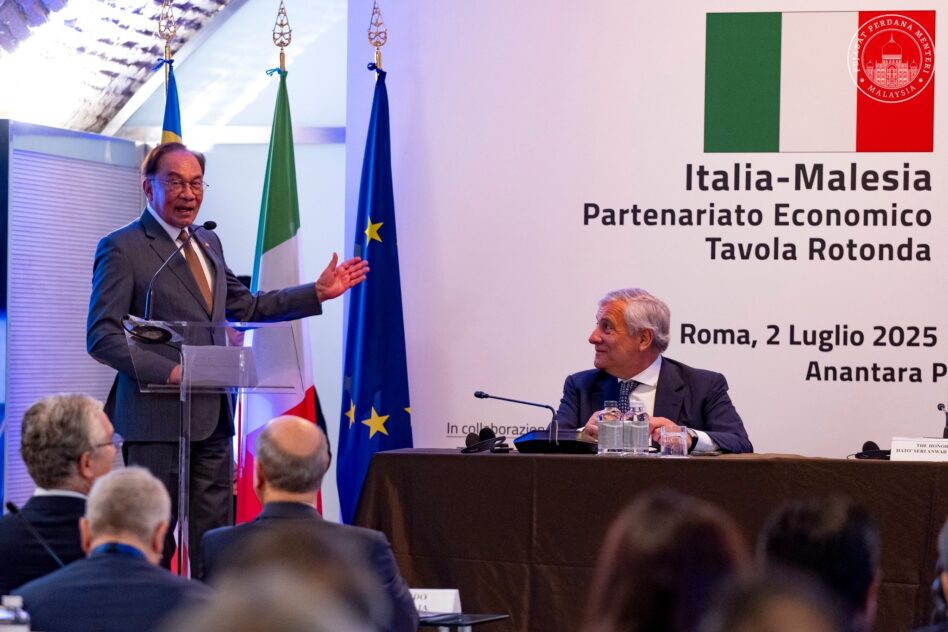ON July 26, the long-awaited Parliament was finally reconvened after the numerous demands were made by all levels of the society.
Nonetheless, when the Opposition tried to topple Perikatan Nasional (PN) from power, through a vote over the annulment of the Emergency Ordinances (EO), our Law minister Datuk Seri Takiyuddin Hassan shocked the House by declaring that the EO has been revoked on July 21.
Such revocation can be seen as a smart trick played by PN in preventing their rule from being challenged and truncated. Since the Emergency was already revoked, there is no necessity for the Parliament to vote over the annulment and posing no threat of the Government being voted down.
It was definitely a blow to the Opposition as there was no prior notice to it.
What was strange about the situation was that even its allies, including Umno, was oblivious to it.
Now let us look at the Federal Constitution, the supreme law of the law. Article 150(1) states that “Emergency” refers to threats to the security, economic life or public order in the Federation or any part thereof and the Yang di-Pertuan Agong has the federal power to declare Emergency, after receiving advice from the Prime Minister.
Although the genuine reason behind the declaration of our current Emergency was in doubt, certainly, the Prime Minister had the power to advise the Agong to promulgate an Emergency under the name of “curbing COVID-19” and thus, the declaration brought us to today’s question.
Then, Article 150(3) of the Federal Constitution provides two situations where a Proclamation of Emergency can cease to exist:
- If it is revoked by the Yang di-Pertuan Agong
- If both Houses of Parliament annul it by resolutions
Obviously, since our current Emergency was revoked even before it was laid down before the Parliament, it can only be cancelled through the first alternative, where the Agong revokes it.
It is of utmost importance for us to refer to the relevant decided cases, if any. Fortunately, the case of Teh Cheng Poh v Public Prosecutor [1979] 1 MLJ 50 decided by the Privy Council in 1979 does lend us a hand on this matter. To make things clear, a quote propounded by the honourable Lord Diplock must be highlighted:
“The power to revoke, however, like the power to issue a proclamation of Emergency, vests in the Yang di-Pertuan Agong, and the Constitution does not require it to be exercised by any formal instrument.
“In their Lordships’ view, a proclamation of a new Emergency declared to be threatening the security of the Federation as a whole must by necessary implication be intended to operate as a revocation of a previous Proclamation, if one is still in force.”
Essentially, the Privy Council clarified that the Agong, as the head of state of Malaysia, has the power to revoke the Emergency and this is why the consent obtained from the Agong plays a vital role in cancelling the Emergency.
What now, Government?
Although the revocation can be done without a formal instrument, there must be a necessary implication made to indicate that such an Emergency has been annulled.
For such implication, the court provided an example where a declaration of a new Emergency may suggest that the previous Emergency was revoked.
However, it is humbly submitted that this view might not be appropriate anymore with our current Federal Constitution as the insertion of clause (2A) in Article 150 in 1981 has enshrined that more than one Emergency can exist concurrently if they are issued on different grounds or in different circumstances.
Now, back to the present situation, although the Emergency may be terminated without a formal instrument where the announcement can even remain unpublished in the gazette, the key point to be noted is the Agong must, nevertheless, approve the revocation of Emergency at the first place.
Furthermore, taking into account that there was no relevant implication or incident to imply that such Emergency has been revoked prior to the commencement of Parliament, the royal consent weighs a lot in proving the validity of the annulment of the Emergency.
In fact, it is essential to manifest evidence that the Emergency was validly revoked. Not only because that the voting session of the Parliament in nullifying the Emergency would indirectly open the Pandora’s box in demonstrating whether the ruling Government still holds the majority support of the MPs, but it is also crucial to the public too because if the Emergency was revoked, all the fines issued to the offenders after July 21 will be of no effect.
Therefore, the public does not have to pay for their wrongdoing if the violation was done after July 21, when the Emergency was annulled.
In short, in last week’s case, the royal consent is the most important ingredient in revoking an Emergency.
And since the Comptroller of the Royal Household of Istana Negara had stated that His Majesty was very disappointed to what was happened in the Parliament clearly indicating that the Agong had not consented to the annulment; only God, our de facto Law Minister and his comrades know the secret behind this unconstitutional move. – 31 July, 2021
Cheah Zhi Qian is currently a second-year law student at the University of Malaya.
The views expressed are solely of the author and do not necessarily reflect those of Focus Malaysia.









